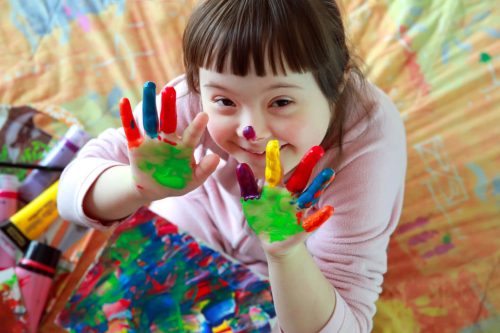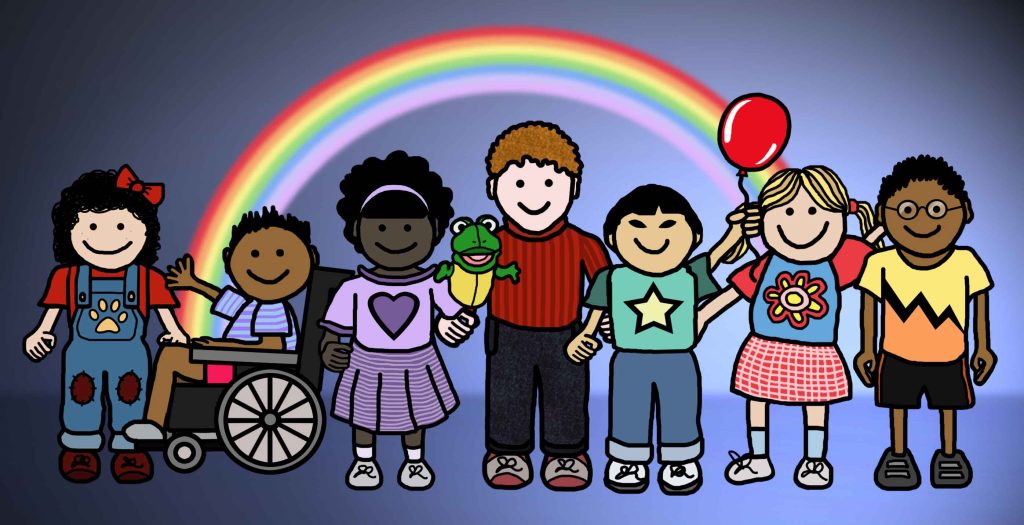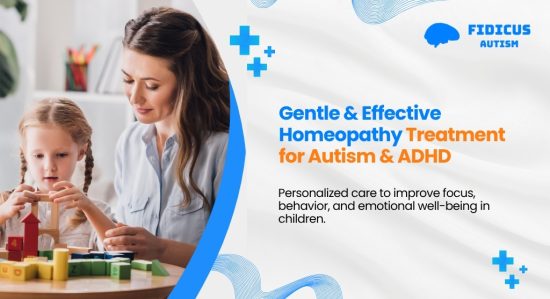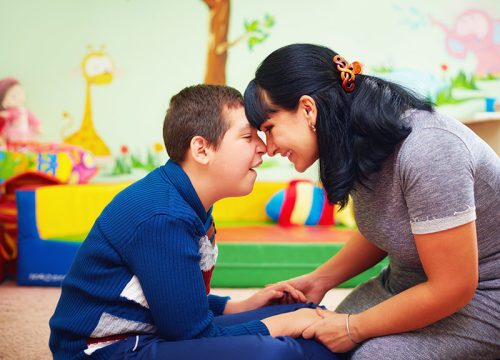Early identification of a special needs child can significantly influence their future development, education, and quality of life. Special needs can include a wide spectrum of conditions such as developmental delays, learning disabilities, autism spectrum disorders, ADHD, and emotional or behavioral challenges. Often, early signs may appear as delayed speech, difficulty maintaining focus, poor social interaction, or challenges in learning age-appropriate skills. Recognizing these indicators at the right time allows parents and caregivers to take proactive steps toward intervention.
Homeopathy provides a safe, gentle, and holistic way to support special needs child. Instead of focusing solely on the visible symptoms, homeopathic treatment addresses the child’s unique personality, emotional state, and overall constitution. It aims to stimulate the body’s natural healing abilities, promote emotional balance, improve concentration, and enhance communication skills.
What Are Special Needs Children?
Definition of special needs child: A Special Needs Child is one who requires additional support because of developmental, learning, emotional, or physical differences that make everyday activities more challenging.
Special child meaning: It emphasises that while these children have different needs, their potential is equally important. The term reminds us that every child is special, and with the right approach, they can flourish in education, relationships, and independence.
Step-by-step understanding:
- Identify the type of need – Developmental (autism, ADHD), learning-based (dyslexia), sensory (sensitivity to noise or touch), physical (motor skill delay), or medical (chronic illness).
- Know the difference between delay and disability – A delay may improve with early support, while a disability may require ongoing assistance.
- See the child, not the label – Diagnosis is just a tool to plan the best support, not to define a child’s identity.

Identify the Different Types of Children with Special Needs
Early recognition is one of the most important steps you can take as a parent or caregiver. When you spot signs early, you can start supportive interventions and homeopathy treatment sooner, giving the child the best possible chance to progress in learning, communication, and daily living.
Below are the most common categories of special needs, their typical indicators, and how you can observe them in everyday life.
1. Autism Spectrum Disorder (ASD)
Children with autism often show differences in communication, behaviour, and social interaction. Signs may vary from mild to more noticeable.
Common signs:
- Delayed or absent speech, or speaking in a repetitive or scripted way
- Limited or no eye contact during interactions
- Preference for repetitive activities (lining up toys, spinning objects)
- Over- or under-sensitivity to sensory input such as noise, textures, smells, or lights
- Resistance to changes in routine
Example for parents: A child may always want the same route to school and get upset if you take a different road.
Support Option: Homeopathy Treatment for Autism can be customised to address behavioural rigidity, improve focus, encourage calmness, and support emotional balance.
2. Attention-Deficit/Hyperactivity Disorder (ADHD)
This condition affects attention span, activity levels, and self-control. Children may be constantly “on the go” or seem unable to complete tasks.
Common signs:
- Easily distracted by sounds, movements, or even their own thoughts
- High physical activity levels, constantly moving or fidgeting
- Impulsive behaviour, blurting out answers, or difficulty waiting turns
- Struggles to follow multi-step instructions
Example for parents: The child may start a drawing but abandon it halfway to play with something else, leaving many activities incomplete.
3. Learning Disabilities
These affect how children understand and use information. They are not due to lack of intelligence but differences in the way the brain processes information.
Types and signs:
- Dyslexia: Struggles with reading, spelling, letter recognition, or mixing up similar words
- Dyscalculia: Difficulty understanding maths concepts, number patterns, or performing calculations
- General learning difficulties: Poor memory for instructions, slow pace in completing schoolwork
Example for parents: A child may forget math steps even after repeated explanation, or reverse letters when writing (e.g., writing “b” instead of “d”).
4. Speech and Language Disorders
These involve difficulties with speaking, understanding, or using language appropriately.
Common signs:
- Limited vocabulary for age compared to peers
- Unclear pronunciation or frequent speech errors
- Difficulty forming sentences or expressing thoughts
- Trouble understanding instructions or answering questions
Example for parents: A 5-year-old may speak only in single words or may mispronounce common words so they are hard to understand.
5. Sensory Processing Differences
These occur when the brain has trouble receiving and responding to information from the senses.
Common signs:
- Avoids certain textures (clothing tags, rough fabrics) or sounds (vacuum cleaner, loud music)
- Seeks excessive sensory input such as touching surfaces, spinning in circles, or smelling objects repeatedly
- Overreacts or underreacts to pain or temperature
Example for parents: A child may refuse to wear certain clothes because the fabric “feels wrong” or cover their ears in noisy places.
6. Physical or Neuromotor Conditions
These affect movement, coordination, and physical strength.
Common signs:
- Weak muscle tone (appears floppy)
- Poor coordination (frequent tripping, difficulty catching a ball)
- Delays in milestones such as crawling, walking, or balancing on one foot
Example for parents: A 4-year-old may still have trouble climbing stairs without holding the railing.
7. Intellectual Disability
This involves below-average intellectual functioning and limitations in adaptive skills.
Common signs:
- Slower progress in learning to speak, read, or solve problems
- Needs frequent repetition to learn new skills
- Requires extra support for self-care activities like dressing, bathing, or eating independently
Example for parents: A child may not recognise numbers or letters at an age when most peers can.
8. Hearing or Vision Impairments
These affect the ability to hear sounds clearly or see objects properly, impacting learning and communication.
Common signs:
- Not reacting to loud sounds or calling their name
- Speaking in a very loud or very soft voice (possible hearing issue)
- Holding objects extremely close to the face to see details
- Frequent squinting or tilting the head to focus
Example for parents: A child may watch TV at a very high volume or sit extremely close to the screen.

Characteristics of Children with Special Needs
While every child has their own strengths, interests, and personality, certain traits appear more often in children with special needs. Recognising these traits early can help you choose the right approach — both at home and during homeopathy treatment — to support your child’s growth.
1. Communication Challenges
Some children may have difficulty expressing themselves or understanding others. These challenges can range from mild speech delays to being completely non-verbal.
Common signs:
- May be non-verbal or speak fewer words than peers of the same age
- Difficulty starting or maintaining a conversation
- Limited use of gestures, facial expressions, or tone changes in speech
- Trouble understanding abstract concepts or multi-step instructions
Parent Example: A child might answer only “yes” or “no” to questions instead of giving full sentences.
Action: Use visual aids, picture cards, and patient communication techniques. Incorporating Homeopathy Medicine for Autism or related needs may also help improve responsiveness and attention span.
2. Social Interaction Differences
Children may interact with others differently, preferring solitude or struggling to follow social norms.
Common signs:
- Avoids group activities, prefers solitary play
- Struggles to share toys or take turns in games
- Difficulty interpreting social cues like facial expressions or body language
- May appear disinterested in peers but engage well with adults or specific family members
Parent Example: A child might play near others but not directly with them, even in a group setting.
Action: Encourage structured, short-duration social interactions and use role-play activities to teach sharing and cooperation.
3. Learning Delays
Some children need more time and repetition to grasp academic concepts or daily skills.
Common signs:
- Requires repeated explanations for lessons to “stick”
- Struggles to retain learned skills from one day to the next
- Difficulty applying learned concepts to new situations
- Often works below grade level despite effort
Parent Example: A child may be able to write their name one day but forget how to form certain letters the next.
Action: Break lessons into smaller, simpler steps with regular review. Pairing this with individualised homeopathy treatment may support focus and reduce learning fatigue.
4. Behavioural Patterns
Behaviour can be a form of communication for children with special needs, especially if verbal skills are limited.
Common signs:
- Meltdowns or emotional outbursts when routines change
- Self-stimulatory behaviours like rocking, hand-flapping, spinning objects
- Strong attachment to specific routines, foods, or clothing items
- Difficulty calming down without assistance
Parent Example: A child may cry or refuse to leave the house if their favourite shoes are unavailable.
Action: Introduce small, predictable changes to help build flexibility and resilience. Use calming tools like soft toys, weighted blankets, or quiet spaces.
5. Sensory Sensitivities
Sensory processing differences can make everyday environments overwhelming.
Common signs:
- Overreaction to clothing tags, certain fabrics, bright lights, or loud noises
- Avoidance of specific textures in food or surroundings
- Seeking extreme sensory input (e.g., jumping, spinning, touching different surfaces)
- Discomfort in crowded or noisy places
Parent Example: A child might cover their ears when a blender is turned on or refuse to wear socks with seams.
Action: Adapt environments to minimise discomfort — choose soft fabrics, adjust lighting, and control noise levels. Homeopathy can support emotional stability in sensory-overload situations.
6. Motor Skill Delays
Motor skills include both fine motor skills (small movements like writing) and gross motor skills (larger movements like walking and jumping).
Common signs:
- Difficulty with tasks like buttoning clothes, holding a pencil, or using scissors
- Poor balance or frequent tripping
- Delayed crawling, walking, or jumping milestones
- Weak muscle tone or clumsy movement patterns
Parent Example: A child might avoid playground climbing equipment because it feels too challenging.
Action: Include daily fine-motor (puzzle assembly, bead threading) and gross-motor (hopping, ball play) activities to strengthen skills.

Homeopathy Treatment for Autism and Other Special Needs Conditions
Homeopathy offers a gentle, non-toxic, and individualised approach to care. At Fidicus Autism, every case begins with a detailed consultation to understand the child’s physical health, emotional traits, behavioural patterns, and environmental factors.
Why parents choose homeopathy for special needs children:
- Natural and Safe – Remedies are prepared from natural sources and are safe for long-term use.
- Personalised Remedies – Each prescription is customised to the child’s unique symptom profile.
- Holistic Benefits – Can support improvements in focus, communication, social interaction, and emotional stability.
- No Side Effects – Gentle on the body and mind, suitable even for sensitive children.
- Support for Overall Well-being – May help with appetite, sleep quality, and stress management.
Example improvements reported by parents:
- Better eye contact and responsiveness
- Reduced irritability and meltdowns
- Increased attention span during learning activities
- More willingness to engage socially

How to Deal with a Special Needs Child — Practical Parent Guide
Raising a child with special needs comes with unique challenges — but also unique rewards. The key is understanding, patience, and a tailored approach that fits your child’s personality and pace. Here’s a step-by-step guide for parents:
1. Accept and Acknowledge
- Why it matters: Acceptance creates emotional stability for both you and your child. Denial can delay essential support.
- How to do it: Learn about your child’s condition, talk openly with family, and use supportive language at home.
- Example: Instead of “You can’t do this,” say “Let’s try a different way.”
2. Stay Patient and Consistent
- Why it matters: Children with special needs often require more time to adapt to new skills or environments.
- How to do it: Keep routines predictable — same bedtime, mealtimes, and activity sequence.
- Example: If brushing teeth is a challenge, break it into steps and repeat the same order daily.
3. Focus on Strengths
- Why it matters: Building on what your child enjoys creates confidence and reduces frustration.
- How to do it: Identify favourite activities (drawing, puzzles, music) and incorporate them into learning.
- Example: If your child loves music, use songs to teach counting or language skills.
4. Use Clear Communication
- Why it matters: Simple, direct instructions prevent confusion and reduce behavioural outbursts.
- How to do it: Use short sentences, visual aids, gestures, and consistent words for repeated actions.
- Example: Instead of “Get ready for bed now,” say “Put toys away → Wash hands → Brush teeth.”
5. Set Realistic Goals
- Why it matters: Overly ambitious expectations can cause stress for both you and your child.
- How to do it: Break large goals into smaller, measurable steps.
- Example: Instead of “Learn to read in a month,” aim for “Recognise 5 new words this week.”
6. Celebrate Every Milestone
- Why it matters: Positive reinforcement boosts motivation and self-esteem.
- How to do it: Offer verbal praise, a high-five, or a favourite activity as a reward.
- Example: “You packed your school bag yourself! That’s fantastic!”
7. Involve Your Child in Decisions
- Why it matters: Encourages independence and decision-making skills.
- How to do it: Let your child choose between two clothing options or two snack choices.
- Example: “Do you want the red T-shirt or the blue one today?”
8. Consider Homeopathy Early
- Why it matters: Early intervention with a personalised homeopathy treatment plan can support emotional balance, concentration, sensory regulation, and overall well-being.
- How to do it: Consult a qualified homeopathy doctor who understands neurodevelopmental conditions and can create a customized plan.
- Example: Many parents notice improvements in focus, calmness, and adaptability over time with early homeopathy support.

Final Thought
Supporting a Special Needs Child is a journey of patience, understanding, and unconditional love. Early identification, proper professional guidance, and personalised homeopathic care can create significant positive change.
At Fidicus Autism, we believe every child is special. Through Homeopathy Treatment for Autism and Homeopathy Medicine for Autism, we help children reach their highest potential — naturally, gently, and effectively.





